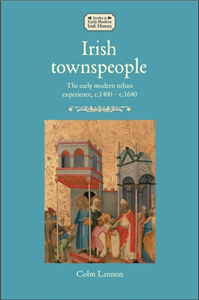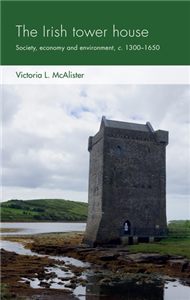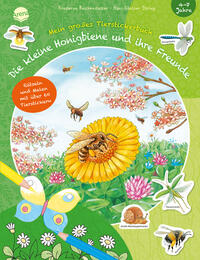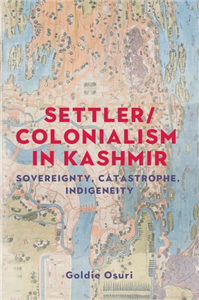Your Search Results
-
Promoted ContentHumanities & Social SciencesDecember 2020
Rethinking settlement and integration
by Aleksandra Grzymala-Kazlowska
-
Promoted ContentHumanities & Social SciencesMarch 2021
African cities and collaborative futures
by Michael Keith, Andreza Aruska de Souza Santos
-
 Trusted Partner
Humanities & Social SciencesMarch 2021
Trusted Partner
Humanities & Social SciencesMarch 2021African cities and collaborative futures
Urban platforms and metropolitan logistics
by Michael Keith, Andreza Aruska de Souza Santos, Susan Parnell
This groundbreaking volume brings together scholars from across the globe to discuss the infrastructure, energy, housing, safety and sustainability of African cities, as seen through local narratives of residents. Drawing on a variety of fields and extensive first-hand research, the contributions offer a fresh perspective on some of the most pressing issues confronting urban Africa in the twenty-first century. At a time when the future of the region as a whole will be determined in large part by its cities, the implications of these developments are profound. With case studies from cities in Ethiopia, Kenya, Malawi, Niger, Nigeria, South Africa and Tanzania, this volume explores how the rapid growth of African cities is reconfiguring the relationship between urban social life and its built forms. While the most visible transformations in cities today can be seen as infrastructural, these manifestations are cultural as well as material, reflecting the different ways in which the city is rationalised, economised and governed. How can we 'see like a city' in twenty-first-century Africa, understanding the urban present to shape its future? This is the central question posed throughout this volume, with a practical focus on how academics, local decision makers and international practitioners can collaborate to meet the challenge of rapid growth, environmental pressures and resource gaps.
-
 Trusted Partner
Humanities & Social SciencesMarch 2017
Trusted Partner
Humanities & Social SciencesMarch 2017Rethinking settler colonialism
History and memory in Australia, Canada, Aotearoa New Zealand and South Africa
by Annie Coombes
Rethinking settler colonialism focuses on the long history of contact between indigenous peoples and the white colonial communities who settled in Australia, Aotearoa New Zealand, Canada and South Africa. It interrogates how histories of colonial settlement have been mythologised, narrated and embodied in public culture in the twentieth century (through monuments, exhibitions and images) and charts some of the vociferous challenges to such histories that have emerged over recent years. Despite a shared familiarity with cultural and political institutions, practices and policies amongst the white settler communities, the distinctiveness which marked these constituencies as variously, 'Australian', 'South African', 'Canadian' or 'New Zealander', was fundamentally contingent upon their relationship to and with the various indigenous communities they encountered. In each of these countries these communities were displaced, marginalised and sometimes subjected to attempted genocide through the colonial process. Recently these groups have renewed their claims for greater political representation and autonomy. The essays and artwork in this book insist that an understanding of the political and cultural institutions and practices which shaped settler-colonial societies in the past can provide important insights into how this legacy of unequal rights can be contested in the present. It will be of interest to those studying the effects of colonial powers on indigenous populations, and the legacies of imperial rule in postcolonial societies.
-
 Trusted Partner
Humanities & Social SciencesMay 2026
Trusted Partner
Humanities & Social SciencesMay 2026Irish townspeople
The early modern urban experience, c.1400–c.1640
by Colm Lennon
Through a series of innovative perspectives, this book examines how early modern Irish townspeople experienced the urban world through a range of family and associational ties. Migrants inducted through town citizenship and marriage bonded more closely as sisters or brothers of confraternities and guilds, consolidating parish membership. Civic religion saw the integration of religion with town politics and councils, and monastic charity of the friars' hospitals preceded the era of modern municipal welfare. In circumstances of the alienation of the long-settled Catholic townspeople from the state's religious and political Reformation in the seventeenth century, they drew sustenance from the continuity of institutions such as colleges, fraternities and hospitals and forms of coexistence with Protestant fellow-citizens.
-
 Trusted Partner
Humanities & Social SciencesOctober 2024
Trusted Partner
Humanities & Social SciencesOctober 2024Egypt and the rise of fluid authoritarianism
Political ecology, power and the crisis of legitimacy
by Maria Gloria Polimeno
Egypt and the rise of fluid authoritarianism focuses on the struggle of the post-2013 political authorities for internal political legitimacy after the crisis following the 2013 coup d'état. It explores the microstructural and macro-systemic dynamics of leadership, power, protests and the authority-making process in political systems. These cannot simply be defined as structural, political, social and economic projections of the authoritarianism of the past, but rather as a rupture with that past. The book offers a complex, ground-breaking socio-political and economic analysis into how the forging of an internal political legitimacy claim has eventually modified the regime in Egypt along the authoritarian spectrum, turning into a fluid autocracy closer to a non-exclusivist personalist regime. This shift had implications that resonated both politically and economically.
-
 Trusted Partner
Trusted Partner
-
 Trusted Partner
Humanities & Social SciencesMarch 2017
Trusted Partner
Humanities & Social SciencesMarch 2017Emigration from Scotland between the wars
by Marjory Harper
Emigration from Scotland has always been very high. However, emigration from Scotland between the wars surpassed all records; more people emigrated than were born, leading to an overall population decline. Why was it so many people left? Marjory Harper, whose knowledge is grounded in a deep understanding of the local records, maps out the many factors which worked together to cause this massive diaspora. After an opening section where the author sets the Scottish experience within the context of the rest of the British Isles, the book then divides the country geographically, starting with the Highlands, then coastal Scotland, and the urban Lowland highlighting in turn the factors that particularly influenced each of these areas. Harper then discusses the organised religious and political movements that encouraged emigration. By interweaving personal stories with statistical evidence Harper brings to life the reality behind the dramatic historical migration.
-
 Trusted Partner
Humanities & Social SciencesJune 2019
Trusted Partner
Humanities & Social SciencesJune 2019The Irish tower house
by Victoria L. McAlister, Duncan Sayer, Joshua Pollard
-
 Trusted Partner
Humanities & Social SciencesApril 2021
Trusted Partner
Humanities & Social SciencesApril 2021The Irish tower house
Society, economy and environment, c. 1300–1650
by Victoria L. McAlister
The Irish tower house examines the social role of castles in late-medieval and early modern Ireland. It uses a multidisciplinary methodology to uncover the lived experience of this historic culture, demonstrating the interconnectedness of society, economics and the environment. Of particular interest is the revelation of how concerned pre-modern people were with participation in the economy and the exploitation of the natural environment for economic gain. Material culture can shed light on how individuals shaped spaces around themselves, and tower houses, thanks to their pervasiveness in medieval and modern landscapes, represent a unique resource. Castles are the definitive building of the European Middle Ages, meaning that this book will be of great interest to scholars of both history and archaeology.
-
 Trusted Partner
Trusted Partner
-
 Trusted Partner
Literature & Literary StudiesJanuary 2014
Trusted Partner
Literature & Literary StudiesJanuary 2014Court and civic society in the Burgundian Low Countries c.1420–1530
by Andrew Brown, Graeme Small
This volume is the first ever attempt to unite and translate some of the key texts which informed Johan Huizinga's famous study of the Burgundian court, The Waning of the Middle Ages, a work which has never gone out of print. It combines these texts with sources that Huizinga did not consider, those that illuminate the wider civic world that the Burgundian court inhabited and the dynamic interaction between court and city. Through these sources, and an introduction offering new perspectives on recent historiography, the book tests whether Huizinga's controversial vision of the period still stands. Covering subjects including ceremonial events, such as the spectacles and gargantuan banquets that made the Burgundian dukes the talk of Europe, the workings of the court, and jousting, archery and rhetoric competitions, the book will appeal to students of late medieval and early modern Europe and to those with wider interests in court culture, ritual and ceremony.
-
 Trusted Partner
Business, Economics & LawFebruary 2022
Trusted Partner
Business, Economics & LawFebruary 2022Latin America and international investment law
by Sufyan Droubi, Cecilia Juliana Flores Elizondo, Jean d'Aspremont, Sufyan Droubi, Iain Scobbie
-
 Trusted Partner
Business, Economics & LawJanuary 2026
Trusted Partner
Business, Economics & LawJanuary 2026Latin America and international investment law
A mosaic of resistance
by Sufyan Droubi, Cecilia Juliana Flores Elizondo
Latin America has been a complex laboratory for the development of international investment law. While some governments and non-state actors have remained true to the Latin American tradition of resistance towards the international investment law regime, other governments and actors have sought to accommodate said regime in the region. Consequently, a profusion of theories and doctrines, too often embedded in clashing narratives, has emerged. In Latin America, the practice of international investment law is the vivid amalgamation of the practice of governments sometimes resisting and sometimes welcoming mainstream approaches; the practice of lawyers assisting foreign investors from outside and within the region; and the practice of civil society, indigenous peoples and other actors in their struggle for human rights and sustainable development. Latin America and international investment law describes the complex roles that governments have played vis-à-vis foreign investors and investments; the refreshing but clashing forces that international organizations, corporations, civil society, and indigenous peoples have brought to the field; and the contribution that Latin America has made to the development of the theory and practice of international investment law, notably in fields in which the Latin American experience has been traumatic: human rights and sustainable development. Latin American scholars have been contributing to the theory of international investment law for over a century; resting on the shoulders of true giants, this volume aims at pushing this contribution a little further.
-
 Trusted Partner
Children's & YA
Trusted Partner
Children's & YAHamster Humboldt. Small and Steady Wins the Race
by Meike Betz
This intrepid hamster plunges into every adventure with full cheeks! Humboldt is a detective, adventurer and – a hamster. His size doesn’t stop him from helping the people of Villy Village out of all sorts of fixes whenever he’s not helping his owner Babs and her daughter Elli in the post office. No problem is too big for him! Only his owner’s money worries leave him flummoxed. But then Babs and Elli win the lottery and are over the moon – until they receive an anonymous postcard. Humboldt’s life is suddenly in dire straits because the unknown blackmailer wants Babs and Elli’s lottery ticket – or he’s going to hurt Humboldt. When the police refuses to get to the bottom of the case, Humboldt decides to take matters into his own paws. He’s keen to put a stop to this lottery villain’s antics! HAMSTER HUMBOLDT. SMALL AND STEADY WINS THE RACE is a detective and adventure story full of animal-entertainment for girls and boys aged 8+.
-
 Trusted Partner
Trusted Partner
-
 Trusted Partner
March 2021
Trusted Partner
March 2021Columbus, the Discarded Explorer
Disaster of the legendary sailor
by Wolfgang Wissler
There he stands, the man the whole of Spain cheered, before whom the most catholic regents Isabella and Ferdinand rose to their feet, his eyes on his ship Capitana, devoured by shipworm, stranded off Jamaica. Some of the crew mutiny, the locals can no longer be fobbed off with glass beads, the Spanish on the nearby island of Hispaniola do not help, the world doesn‘t want anything to do with him, the demanding whinger. He, Christopher Columbus, is a John Lackland, a king without land, a conqueror without conquest. Between fiction and historical truth, Wolfgang Wissler recounts the legendary sailor‘s last expedition in an entirely new way – and what a story it is!
-
 Trusted Partner
Literature & Literary StudiesFebruary 2023
Trusted Partner
Literature & Literary StudiesFebruary 2023Imagining the Irish child
Discourses of childhood in Irish Anglican writing of the seventeenth and eighteenth centuries
by Jarlath Killeen
This book examines the ways in which ideas about children, childhood and Ireland changed together in Irish Protestant writing of the seventeenth and eighteenth centuries. It focuses on different varieties of the child found in the work of a range of Irish Protestant writers, theologians, philosophers, educationalists, politicians and parents from the early seventeenth century up to the outbreak of the 1798 Rebellion. The book is structured around a detailed examination of six 'versions' of the child: the evil child, the vulnerable/innocent child, the political child, the believing child, the enlightened child, and the freakish child. It traces these versions across a wide range of genres (fiction, sermons, political pamphlets, letters, educational treatises, histories, catechisms and children's bibles), showing how concepts of childhood related to debates about Irish nationality, politics and history across these two centuries.
-
 Trusted Partner
Children's & YA
Trusted Partner
Children's & YAThe Little Honey Bee and Friends
by Friederun Reichenstetter/ Hans-Günther Döring
Bees, butterflies, ladybirds! So many insects are out and about in our native meadows. This puzzle book is full of little informative texts, animal stickers and pictures to colour in which not only educate but also promote early awareness about the environment and conservation. The pedagogical concept works through age-appropriate tasks and a clear structure: true-to-nature picture book illustrations on the left-hand side with a short factual text that can be read aloud or independently, plus a quiz question, then on the right-hand side are stickers and a puzzle to colour in. Testing knowledge is good. But this goes further: encouraging children to be inquisitive and imaginative about nature. At the end each animal sticker book with the little honey bee will look different. However you want it to be.
-
 Trusted Partner
April 2026
Trusted Partner
April 2026Settler/colonialism in Kashmir
Sovereignty, catastrophe, indigeneity
by Goldie Osuri
Sovereignty, catastrophe, Indigeneity examines Indian rule in occupied Jammu and Kashmir through settler/colonial geopolitics. Engaging with settler colonial, decolonial and Indigenous studies, the book explores how European sovereignty was shaped by settler/colonialism. Settler/colonialism was catastrophic for Indigenous worlds and generated the climate crisis. The book explores how India draws on settler/colonialism's catastrophic mechanisms to rule Kashmir, thus fuelling the climate crisis and participating in the geopolitical settler/colonial world order. Sites of analysis include the India China rivalry, Kashmir's political economy, and India's indigenisation of its Hindu sacred geography in Kashmir. Through this exploration, the author argues for asserting Kashmiri resistance as an Indigenous anti-colonial struggle. The intersections between sovereignty, catastrophe, Indigeneity, and ecology, illuminate Kashmir's place in the geopolitical settler/colonial world order. The book contributes to timely debates regarding settler/colonialism and planetary crises.

























